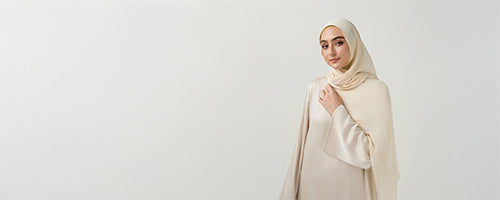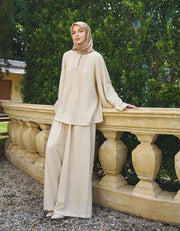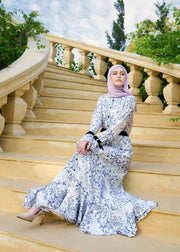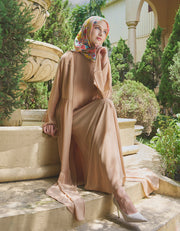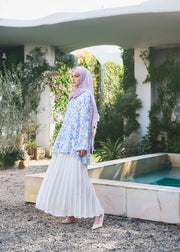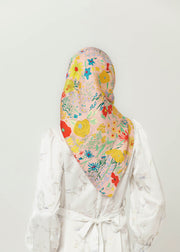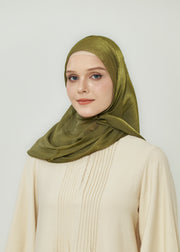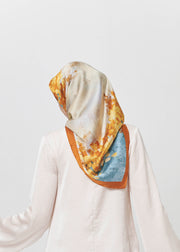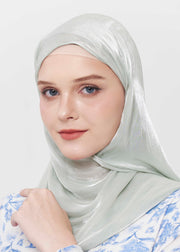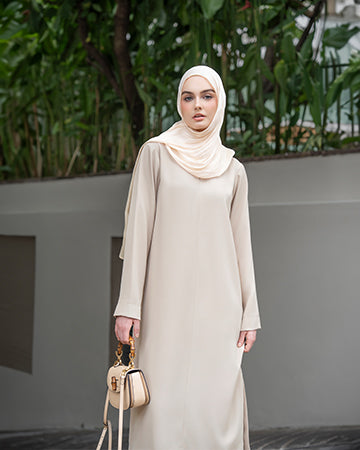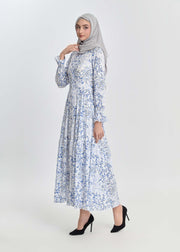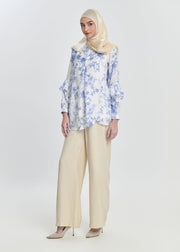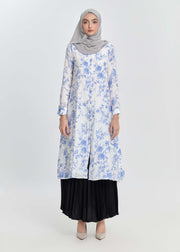Choosing the Right Abaya Fabric for Every Season
The abaya is more than just a garment—it’s a statement of modesty, identity, and personal style. While color and design are often prioritized, choosing the right abaya fabric is equally important. The fabric affects how the abaya feels, flows, and performs across seasons. This guide will help you find the best material for every climate and occasion.
Why Choosing the Right Abaya Fabric Matters
Fabric plays a critical role in how your abaya looks and feels. It affects breathability, flow, weight, and how suitable your abaya is for a particular occasion or climate. When chosen wisely, the right abaya fabric enhances your comfort and personal style without compromising on modesty.
Why Choosing the Right Abaya Fabric Matters
Ideal Abaya Fabric for Summer
In hot climates, lightweight and breathable fabrics keep you cool and modest throughout the day.
-
Cotton: Soft, absorbent, and breathable. Ideal for everyday wear, especially in humid conditions.
-
Linen: Crisp and airy, perfect for summer heat. It’s stylish yet needs regular ironing.
-
Nida: A premium fabric that's soft, breathable, and luxurious. It provides excellent drape and a slightly formal feel, suitable for both casual and semi-formal summer occasions.
These fabrics help avoid overheating while maintaining a refined look.
Ideal Abaya Fabric for Summer
Best Fabrics for Spring and Autumn
Transitional seasons require flexible materials—light enough for warmth during the day, but cozy enough for cool evenings.
-
Crepe: Slightly heavier, matte-textured, and drapes well. Perfect for office wear or smart-casual looks.
-
Jersey: Stretchy, soft, and wrinkle-resistant. Great for layering and daily errands.
These fabrics strike a balance between comfort and polish, making them ideal for unpredictable weather.
Best Fabrics for Spring and Autumn
Warm Abaya Fabric for Winter
When temperatures drop, opt for heavier fabrics that retain heat while staying stylish.
-
Wool blends: Insulating and structured, these are perfect for outdoor winter wear.
-
Velvet: Rich and textured, velvet is ideal for formal winter events. It adds instant luxury and warmth.
Choose darker shades and thicker materials during winter for both elegance and practicality.
Warm Abaya Fabric for Winter
Light Fabrics for Layering
Layering is a key modest fashion strategy, especially for transitional weather. The following fabrics work beautifully as outer or inner layers:
-
Chiffon: Sheer, flowy, and elegant—often used as a top layer.
-
Georgette: Slightly textured and less sheer than chiffon, ideal for structured layering.
-
Silk blends: Soft and light, offering sophistication without bulk.
When layering, always begin with a breathable base to avoid discomfort.
Caring for Different Abaya Fabrics
Each fabric has unique care requirements. Here’s how to keep your abayas in great shape:
-
Cotton & Jersey: Machine washable; air or tumble dry on low.
-
Linen: Gentle wash; steam iron to maintain crispnes
-
Nida & Crepe: Hand wash or dry clean; avoid harsh wringing.
-
Wool & Velvet: Dry clean only; store in a cool, dry place.
Proper care extends the life of your garments and keeps them looking new.
Sustainable Abaya Fabric Options
As the modest fashion world evolves, so does the demand for sustainable and ethical fabric options. Today, many brands—including Minnaba—are offering abayas made from organic cotton, bamboo blends, and recycled materials. These fabrics are not only better for the environment but also align with values of conscious, modest living.
Choosing sustainable abaya fabric options supports responsible fashion while still looking and feeling great.
Where to Find the Right Abaya Fabric
At Minnaba, we understand how important fabric is to your comfort, confidence, and modest fashion expression. That’s why we carefully curate each abaya with materials that match seasonal needs. Explore Minnaba today and discover abayas crafted for every season, occasion, and personal style—with fabrics that truly feel as good as they look.

